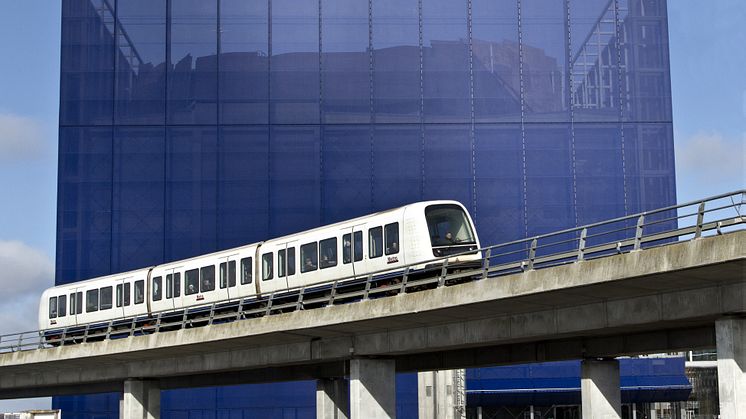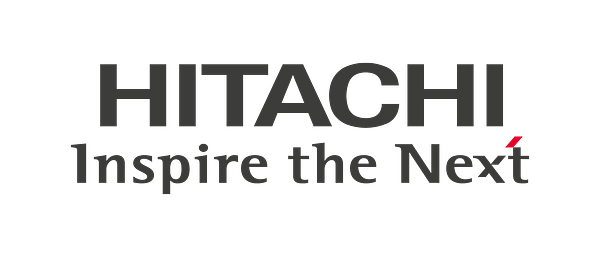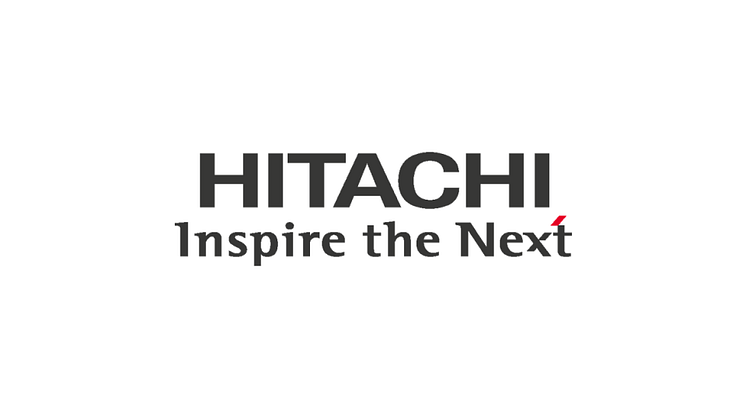
Press release -
Hitachi Rail enters agreement to acquire Thales’ Ground Transportation Systems business
TOKYO / LONDON, 4 August 2021 – Hitachi, Ltd. (TSE: 6501, “Hitachi”). Hitachi Rail today agreed to acquire Thales’ Ground Transportation Systems business (the “Business” or “GTS”) for an enterprise value of €1,660 m (~¥215 bn). The final purchase price will be determined after customary adjustments typical for a transaction of this nature. The acquisition is expected to close in late FY2022[1], subject to the usual conditions including regulatory and antitrust clearances. Employee representatives of both Thales and Hitachi Rail will be informed and consulted according to the laws of the countries concerned throughout the process. Hitachi intends to promote the conditions for a smooth and successful integration of the Business and is willing to take a number of social commitments in this respect.
GTS, a division of Thales, is a global leader in Rail Signalling and Train Control Systems, Telecommunications and Supervision systems and Fare collection solutions. In FY2020, GTS generated €1.6bn of revenues and today employs around 9,000 employees across 42 countries and is headquartered in Germany, France and Canada. Hitachi Rail expects GTS to show continued revenue and EBIT growth and by closing, the implied standalone forward EV/EBIT valuation multiple should be around 10x.
As a result of this agreement, Hitachi Rail expects to drive growth by expanding the scale of its rail signalling systems business globally, bringing an enhanced turnkey railway offering to new markets around the world. The combined business will be positioned to become a global leader in the rail signalling market. The combined strength of Hitachi and GTS’s Digital expertise will also help Hitachi Rail to accelerate its ‘Mobility as a Service’ (“MaaS”) offering for a global customer base.
With the complementary strength of GTS’s signalling activities, and rapid growth in MaaS and digitization in the rail sector, GTS will help Hitachi Rail to potentially reach ¥1 Trn (€7.7bn) revenue and double-digit adjusted operating income ratio by FY2026, or around four years from closing.
The Business consists of four segments: mainline railroad signalling systems, urban rail signalling, integrated communication systems and revenue collection systems. Around 50% of the Business is dedicated to digital offerings, and the company employs a wealth of digital talent in the mobility sector.
The combination of Hitachi Rail and Thales’ Ground Transportation Systems business is strategically attractive, geographically and technologically complementary and synergistic:
-
Global: Complements Hitachi Rail’s existing presence in Japan, Italy, UK and the United States with GTS’s core locations including Germany, France and Canada. Creates a global signalling provider to meet customer demand in more regions around the world. This reinforces Hitachi Rail’s core business as a fully integrated, global provider of rail solutions across rolling stock, signalling, service & maintenance, digital technology and turnkey solutions.
-
Digital: Provides access for GTS’ customers to Hitachi’s Lumada digital solutions and services, and GlobalLogic’s leading digital capability. This accelerates Hitachi Rail’s entry into the MaaS segment which could drive significant growth in line with Hitachi’s 2021 Mid-term Management Plan. According to independent research, the global ‘MaaS’ market is expected to grow by 25%+ compound annual growth rate to 2025[2]. The combined Hitachi Rail and GTS business would be well positioned to benefit from this wider trend.
-
Sustainable: Supports Hitachi’s long-term environmental targets, including achieving carbon neutrality at all its business sites by 2030 and an 80% reduction in CO₂ emissions across the company’s value chain by 2050. For example, GTS’s GreenSpeedTM driver advisory system cuts energy consumption and CO₂ by 15% through optimizing train speeds.
- Synergistic: Run-rate synergies in excess of €100m per year are achievable through the greater scale of the combined business, which would enable growth opportunities such as cross-selling to a wider global customer base and cost competitiveness such as improving effectiveness of procurement, optimizing engineering capabilities and enhanced production. The run-rate synergies are expected to be achieved around 4 years after closing.
Andrew Barr, Chief Executive Officer, Hitachi Rail, said:
"Today’s announcement marks an exciting opportunity for the teams at Hitachi Rail and Thales’ Ground Transportation Systems business to create new value for our customers, cities and passengers around the world. Not only will we grow the reach of our core signalling capabilities as part of our turnkey offering, but we are also bringing together our digital and Mobility as a Service capabilities. The strong teams, customer relationships and technologies at GTS will help us grow to become a major player, further enabled by Lumada and the digital engineering of our teams at GlobalLogic and the broader Hitachi Group."
Philippe Keryer, EVP Strategy, Research & Technology, Thales said:
“After discussions with key market players, Thales has selected the best industrial partner to ensure a successful long term development of its ground transportation business. This move is creating significant value for our clients, employees and shareholders and enables Ground Transportation Systems to be at the forefront of growth in sustainable mobility.”
[1] Equivalent to Hitachi’s FY2022 for the year ending 31 March 2023
[2] Mobility-as-a-Service (MaaS) Global Study 2025, BIS research
ENDS
Notes to Editors:
Deal background
Scheme: 100% acquisition of GTS Ground Transportation business by Hitachi Rail following carve-out from Thales group, subject to information and consultation with employee representative bodies and approvals from the relevant regulatory bodies. Note that statutory accounts do not include carve-out adjustments to the transaction perimeter of GTS, which leads to a higher EBIT for the transaction perimeter than the publicly available GTS accounts.
Price: Enterprise Value of €1,660 m (~¥215 bn). The final purchase price will be determined after customary adjustments for net working capital and net debt based on actual amounts at the closing date.
Types of consideration: Cash
Schedule: The deal is expected to close in late FY2022, subject to approvals from employee representatives and relevant regulatory bodies.
Advisors: Deutsche Bank AG and Perella Weinberg Partners acted as financial advisor to Hitachi in connection with the transaction and Clifford Chance LLP served as legal advisor.
About Thales’ Ground Transport Systems Business
Main Line Signalling (MLS): c50% FY20A revenue
- Train control systems, Traffic management systems, Digitalisation, Field and equipment control, Route control systems
Urban Rail Signalling (URS): c20% FY20A revenue
- Train control systems (CBTC), Route control systems, Services
Integrated Communication Systems (ICS): c20% FY20A revenue
- Operation control, Video & security, passenger mobility, adaptive connectivity, predictive maintenance, Tram & LRT signalling
Revenue Collection Systems (RCS): c10% FY20A revenue
- Transport network fare management, Parking and traffic management, City and road tolling
With strong momentum in the business, as of H1 2021, GTS generated LTM revenues of €1.7bn and LTM EBIT of €121m (7.3% of revenues). Hitachi Rail expects GTS to show continued revenue and EBIT growth and by closing, the implied standalone forward EV/EBIT valuation multiple will be around 10x.
URS (Urban Rail Signalling ), ICS (Integrated Communication Systems) and RCS (Revenue Collection Systems), covering around 50% of revenue, are primarily digital businesses.
GTS focuses on certain key regions as follows:
- GTS has significant brownfield urban signalling capabilities and provides further access to the UK market and access to the German signalling market
- APAC: GTS has significant URS credentials in APAC (e.g. Singapore, Hong Kong) and provides access to China signalling market through existing JV with local partner
- Americas: Adds capabilities in North America through URS HQ in Canada
Thales’ annual investor report can be found here. Please note that the segment’s final financial performance may differ at point of close:
About Hitachi, Ltd.
Hitachi, Ltd. (TSE: 6501), headquartered in Tokyo, Japan, is focused on its Social Innovation Business that combines information technology (IT), operational technology (OT) and products. The company’s consolidated revenues for fiscal year 2020 (ended March 31, 2021) totaled ¥8,729.1bn ($78.6bn), with 871 consolidated subsidiaries and approximately 350,000 employees worldwide. Hitachi is working to increase social, environmental and economic value for its customers across six domains; IT, Energy, Industry, Mobility, Smart Life and Automotive Systems through Lumada, Hitachi's advanced digital solutions, services, and technologies for turning data into insights to drive digital innovation. For more information on Hitachi, please visit the company's website at https://www.hitachi.com.
About Hitachi Rail
Hitachi Rail is a fully integrated, global provider of rail solutions across rolling stock, signalling, service & maintenance, digital technology and turnkey solutions. With a presence in 38 countries across six continents and over 12,000 employees, our mission is to contribute to society through the continuous development of superior rail transport solutions. We are proud of our global achievements, from our world famous ‘bullet trains’, to our signalling solutions and turnkey projects, state-of-the-art traffic management and digital solutions. Drawing on the wider Hitachi Group’s market-leading technology and research-and-development capabilities, we strive for industry leading innovations and solutions that can deliver value for customers and sustainable railway systems that benefit wider society. For information about Hitachi Rail, visit www.hitachirail.com.
About Thales
Thales (Euronext Paris: HO) is a global high technology leader investing in digital and “deep tech” innovations — connectivity, big data, artificial intelligence, cybersecurity and quantum technology — to build a future we can all trust, which is vital to the development of our societies. The company provides solutions, services and products that help its customers —businesses, organisations and states — in the defence, aeronautics, space, transportation and digital identity and security markets to fulfil their critical missions, by placing humans at the heart of the decision-making process.
Thales has 81,000 employees in 68 countries. In 2020, the Group generated sales of €17 billion.
Cautionary Statement
Certain statements found in this document may constitute “forward-looking statements” as defined in the U.S. Private Securities Litigation Reform Act of 1995. Such “forward-looking statements” reflect management’s current views with respect to certain future events and financial performance and include any statement that does not directly relate to any historical or current fact. Words such as “anticipate,” “believe,” “expect,” “estimate,” “forecast,” “intend,” “plan,” “project” and similar expressions which indicate future events and trends may identify “forward-looking statements.” Such statements are based on currently available information and are subject to various risks and uncertainties that could cause actual results to differ materially from those projected or implied in the “forward-looking statements” and from historical trends. Certain “forward-looking statements” are based upon current assumptions of future events which may not prove to be accurate. Undue reliance should not be placed on “forward-looking statements,” as such statements speak only as of the date of this report.
Factors that could cause actual results to differ materially from those projected or implied in any “forward-looking statement” and from historical trends include, but are not limited to:
• exacerbation of social and economic impacts of the spread of COVID-19;
• economic conditions, including consumer spending and plant and equipment investment in Hitachi’s major markets, as well as levels of demand in the major industrial sectors Hitachi serves;
• exchange rate fluctuations of the yen against other currencies in which Hitachi makes significant sales or in which Hitachi’s assets and liabilities are denominated;
• uncertainty as to Hitachi’s ability to access, or access on favorable terms, liquidity or long-term financing;
• uncertainty as to general market price levels for equity securities, declines in which may require Hitachi to write down equity securities that it holds;
• fluctuations in the price of raw materials including, without limitation, petroleum and other materials, such as copper, steel, aluminum, synthetic resins, rare metals and rare-earth minerals, or shortages of materials, parts and components;
• estimates, fluctuations in cost and cancellation of long-term projects for which Hitachi uses the percentage-of-completion method to recognize revenue from sales;
• increased commoditization of and intensifying price competition for products;
• uncertainty as to Hitachi’s ability to attract and retain skilled personnel;
• uncertainty as to Hitachi’s ability to continue to develop and market products that incorporate new technologies on a timely and cost-effective basis and to achieve market acceptance for such products;
• fluctuations in demand of products, etc. and industry capacity;
• uncertainty as to Hitachi’s ability to implement measures to reduce the potential negative impact of fluctuations in demand of products, etc., exchange rates and/or price of raw materials or shortages of materials, parts and components;
• credit conditions of Hitachi’s customers and suppliers;
• uncertainty as to Hitachi’s ability to achieve the anticipated benefits of its strategy to strengthen its Social Innovation Business;
• uncertainty as to the success of acquisitions of other companies, joint ventures and strategic alliances and the possibility of incurring related expenses;
• uncertainty as to the success of restructuring efforts to improve management efficiency by divesting or otherwise exiting underperforming businesses and to strengthen competitiveness;
• general socioeconomic and political conditions and the regulatory and trade environment of countries where Hitachi conducts business, particularly Japan, Asia, the United States and Europe, including, without limitation, direct or indirect restrictions by other nations on imports and differences in commercial and business customs including, without limitation, contract terms and conditions and labor relations;
• the potential for significant losses on Hitachi’s investments in equity-method associates and joint ventures;
• uncertainty as to the success of cost structure overhaul;
• the possibility of disruption of Hitachi’s operations by natural disasters such as earthquakes and tsunamis, the spread of infectious diseases, and geopolitical and social instability such as terrorism and conflict;
• uncertainty as to the outcome of litigation, regulatory investigations and other legal proceedings of which the Company, its subsidiaries or its equity-method associates and joint ventures have become or may become parties;
• the possibility of incurring expenses resulting from any defects in products or services of Hitachi;
• uncertainty as to Hitachi’s ability to maintain the integrity of its information systems, as well as Hitachi’s ability to protect its confidential information or that of its customers;
• uncertainty as to Hitachi’s access to, or ability to protect, certain intellectual property; and
• uncertainty as to the accuracy of key assumptions Hitachi uses to evaluate its employee benefit-related costs.
IMAGES
For high res images of:
Topics
Categories
About Hitachi Rail: Hitachi Rail is a fully integrated, global provider of rail solutions across rolling stock, signalling, service & maintenance, digital technology and turnkey solutions. With a presence in 38 countries across six continents and over 12,000 employees, our mission is to contribute to society through the continuous development of superior rail transport solutions. We are proud of our global achievements, from our world famous ‘bullet trains’, to our signalling solutions and turnkey projects, state-of-the-art traffic management and digital solutions. Drawing on the wider Hitachi Group’s market-leading technology and research-and-development capabilities, we strive for industry leading innovations and solutions that can deliver value for customers and sustainable railway systems that benefit wider society. For information about Hitachi Rail, visit www.hitachirail.com.




